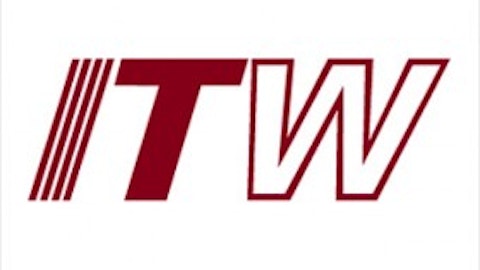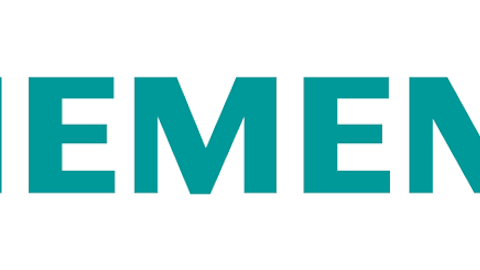Key Risks
Many industrial-related businesses are suffering in today’s business environment, which is marked by sluggish growth, commodity price weakness, and meaningful foreign currency exchange rate headwinds. No one knows when these headwinds will abate, but they seem unlikely to impact the long-term earnings power of ITW.
Two risks that seem like more reasonable threats to the company’s future are (1) the knock-on effects from major changes made to its organizational structure and (2) the challenge large conglomerates face grow organic sales faster than GDP.
Neither of these longer-term risks appears to be developing today, but we will continue monitoring them. Regarding the first risk, ITW has prided itself on letting its acquired businesses continue doing what they do best – understanding their customer needs on a deep level and maintaining their “small business” feel.
ITW became so large (over 800 regional business divisions) that it had to further consolidate its operational structure to less than 90 divisions. Will this take away some of the autonomy and success its acquired companies enjoyed? What impact will this have on the culture? Will bureaucracy increase?
It’s too early to say (most of these consolidation efforts began around 2013), but ITW’s renewed emphasis on organic growth and consolidated operational structure is a deviation from the company’s prior successful growth strategy.
Like many large cap businesses, ITW’s sales mix isn’t perfect. With so many companies, products, and markets, some will inevitably see margins slip and sales start to dip. ITW has been divesting underperforming businesses and product lines, which has significantly enhanced its profitability.
However, less than half of its total sales mix is growing organically. The company says it is “preparing for growth” in 40% of its business, with hopes to be ready for sustainable organic growth by 2017. We will give management the benefit of the doubt for now, but this is no small feat.
Otherwise, ITW’s diversification, strong cash flow generation, and reasonable balance sheet reduce its risk profile.
Let’s take a look at ITW’s dividend.
Dividend Analysis
We analyze 25+ years of dividend data and 10+ years of fundamental data to understand the safety and growth prospects of a dividend. ITW’s long-term dividend and fundamental data charts can all be seen by clicking here and support the following analysis.
Dividend Safety Score
Our Safety Score answers the question, “Is the current dividend payment safe?” We look at factors such as current and historical EPS and FCF payout ratios, debt levels, free cash flow generation, industry cyclicality, ROIC trends, and more. Scores of 50 are average, 75 or higher is very good, and 25 or lower is considered weak.
ITW recorded an excellent dividend Safety Score of 96, suggesting its current dividend payment is extremely safe. The company’s low payout ratios, strong free cash flow generation, and diversified product mix support the favorable ranking.
Over the last 12 months, ITW’s dividend has consumed 39% of the company’s “as reported” earnings and 43% of its free cash flow. These relatively low payout ratios provide plenty of safety and should allow ITW to enjoy nice dividend growth going forward even if earnings growth temporarily slows down.
Looking at longer-term trends in payout ratios can also be helpful to see if growth in earnings per share has kept up with dividend growth. As seen below, ITW’s payout ratios have consistently fallen in the 20-50% range.

Source: Simply Safe Dividends

Source: Simply Safe Dividends
For dividend companies with enough operating history, it’s always a prudent exercise to observe how their businesses performed during the financial crisis. During 2009, ITW’s sales and earnings fell by 21% and 33%, respectively. The company is clearly sensitive to the broader economy, but it outperformed many other industrial businesses in part because of its consumer-facing businesses and consumable sales, which are somewhat more recession-resistant.

Source: Simply Safe Dividends
High quality companies are able to generate free cash flow year in and year out. Rising cash flow is important because it supports continued dividend growth without expanding the payout ratio. As seen below, ITW’s business is not very capital intensive, which has allowed the company to generate solid free cash flow in each of the last 10 years.

Source: Simply Safe Dividends




